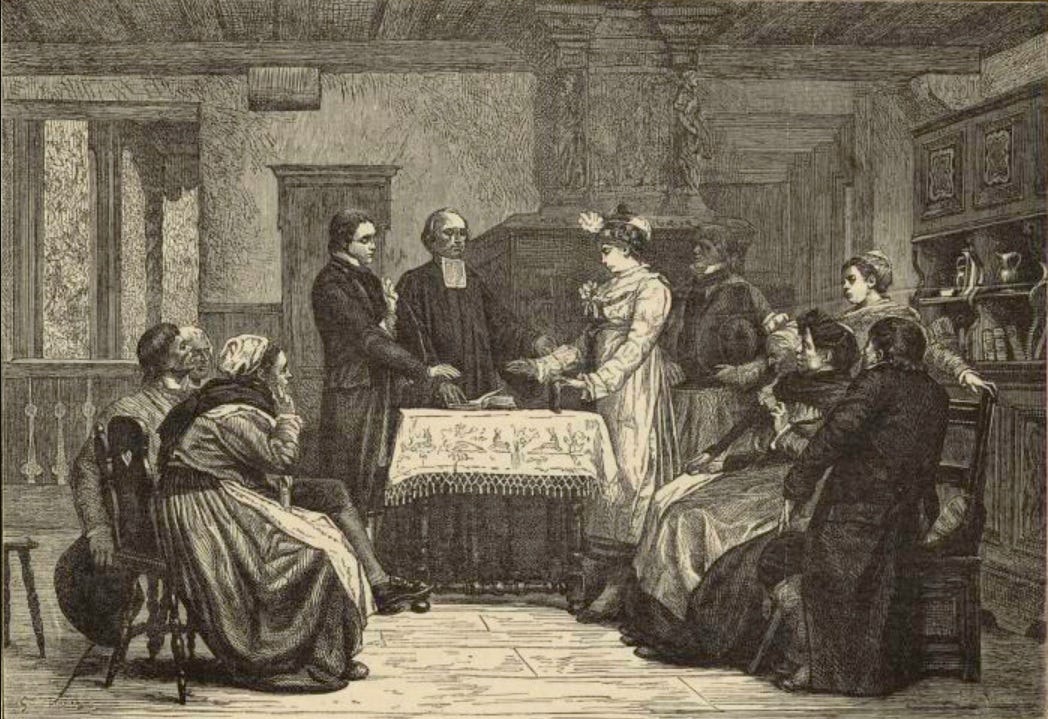The deep state of the patriarchy
Note: This is about events more than four years ago. I’m transferring to Substack a few things I wrote before I started this blog. This was originally published on LinkedIn on January 13, 2019.
I remember some 6 or 7 years ago, a major foundation's women's rights grant-making program went on a lengthy hiatus to figure out what their strategic priorities should be. A colleague and I had a skype call with them during this time, and they said something along the lines of "we have been thinking a long time and just don't know what to spend our money on". My colleague and I, sitting in front of the computer together, looked at each other, astonished, frowning. Both of us always have a never-ending mental list of what needs supporting, when it comes to women's rights around the world.
For me, at the top of the list then and now and always is life-long guardianship of women, which is still, I strongly suspect, the reality for the majority of women around the world.
Under this construct, women are never adults in the legal sense of the term. In a very elementary way, this means they cannot make decisions about the most basic building blocks of life without the permission/approval of a male guardian (their father, brother or husband or even a more remote male relative). They are, in a legal sense, children (or incompetents). They cannot conclude contracts or take any civil law actions - they cannot make purchases or sell property (in some cases, own property), hire someone or take up employment, take out a loan or even have a credit card or bank account, start a business, get married or divorced, enroll in an educational program, found a club etc. They cannot act as adults in public law matters, like applying for documents or government benefits or sue someone in court, for which they need a male guardian's signature all their lives.
Their voices are not their own, their actions are attributed to the males who 'guard' them. Like children, they also cannot enjoy their basic freedoms and make their own decisions. They cannot choose their place of residence, they cannot leave the country or travel within it, they cannot even leave the house or must abide by curfews. As is routinely the case with children, these adult women also cannot make decisions about their own bodies - how to dress, how to wear their hair, whether to do sports and which kind, whether to have sex or not to have sex, whether to get married or not, whether to get pregnant or not, whether to breastfeed or not.
This has gained attention with the story of a Saudi Arabian teenager, and indeed Saudi Arabia is one of the few countries around the world where life-long male guardianship is enshrined in the law. But there are plenty of countries around the world where on paper, women are free adults and men's equals, but in practice they live under violently enforced guardianship nonetheless. Any place of the world where a woman will say "I need to ask me husband's permission" when offered a job or the opportunity to travel, you have guardianship. It's got little to do with religion, either.
The remnants of guardianship are all around us in the West, too. The women's rights movement, from the 19th century, made a determined effort to purge our lawbooks from it, to make women full, equal and free adults under the law. But it took more than a hundred years. Up until my lifetime, women in the US would need a husband or father to co-sign an application for a credit card or a loan to buy a house. Guardianship is why we still have the vile "tradition" of fathers walking their adult daughters down the aisle. In late 19th-century Germany, husbands had the explicit right to tell their wives whether, when and for how long to breastfeed their children, and while this was taken down by early feminists, we are to this day deeply uncomfortable as a society with women daring to make those decisions by themselves.
We grow up on an educational diet of Jane Austen, the Bronte sisters and Virginia Woolf, who describe the excruciating limitations and humiliations women endure in this system, the damage it does to their humanity, and the costs of putting up a fight against it.
Guardianship is the deep state of the patriarchy.
If I was a philanthropist, this would be my strategic priority.

